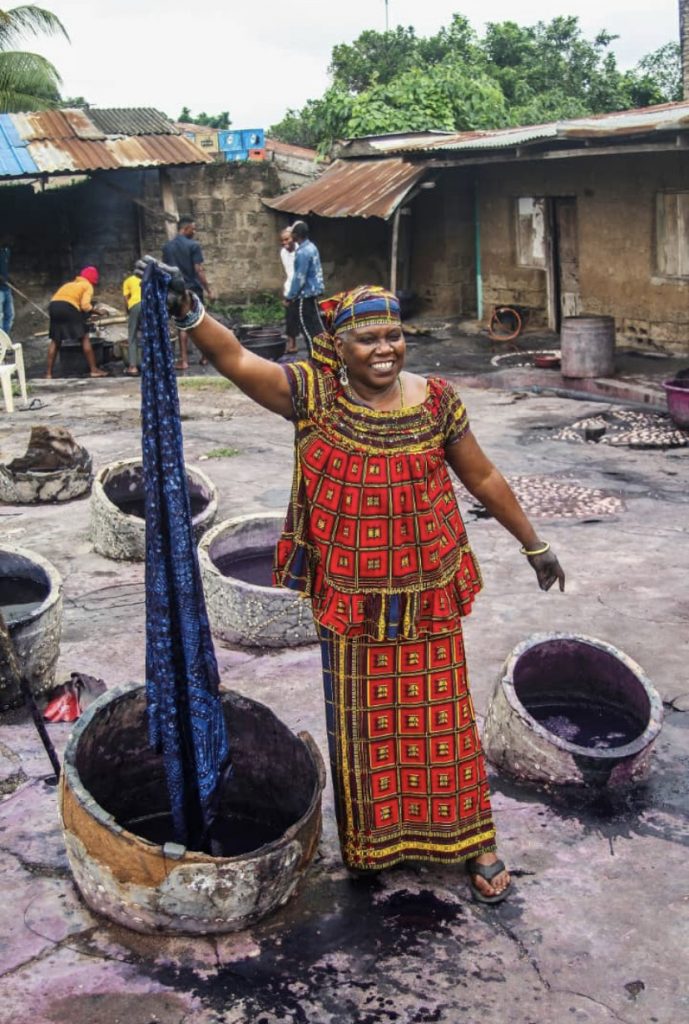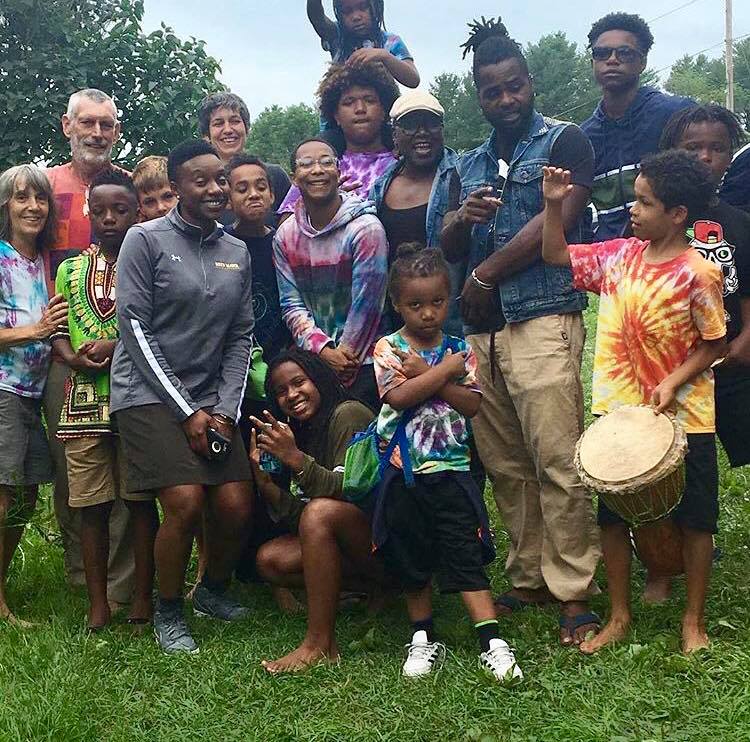This week, we’ve got video from our live FEEDBACK FRIDAY featuring Baltimore-based Afrofuturist Kibibi Ajanku. Kibibi talked about being Baltimore born and raised, her art and dance work as well as how the silence around slavery and African people as related to indigo and other dyes needs to be better understood. She also talked about how some of her work with the Maryland Institute College of Art’s (MICA) natural dye projects delve into this and offer education, community and power. This is part 2 of a 3-part series with the Baltimore Natural Dye Initiative.
Watch the recording here:
As we talked about today, we would love to support Kibibi’s Sankofa Dance Theater with donations. FEEDBACK FRIDAYS are free and it would be great to call upon you now to support a presenter in a real actionable way.
Kibibi wrote to us: “I usually contract a team of artists to move through a schedule of summer educational programming because the youth are our future. For 25 years, I have sent an artist team to the Orchard School in East Alstead, New Hampshire to run an African village camp. I target this camp with this group because it features a tie dye component based on Yoruba tie & dye techniques.”
All donations received will be used to make that camp run this year. The week costs $5000 at full operation. It is outdoor educational programming and can be run safely while adhering to social distance guidelines.
All donations are through PayPal and can be sent to Kibibi at [email protected]
You can follow Kibibi here:
Instagram: @kibibiajanku
Facebook: @kibibisartistry
Next week… Zapotec textile artist, natural dyer, researcher, educator Porfirio Gutíerrez!
RSVP FOR FEEDBACK FRIDAY WITH PORFIRIO HERE.
Porforio Gutíerrez has been recognized by leading organizations such as the Smithsonian Museum of the American Indian, Fomento Cultural Banamex, Harvard University’s Forbes Pigment Collection, and the International Folk Art Market for his tireless work and commitment to his native culture. As a native Zapotec weaver, he advocates for the use and understanding of natural dyes in the creation of his beautifully handwoven textiles. His pieces are included in major museum collections and in the homes of private collectors across the United States, Mexico, and Europe.
Porfirio’s commitment to educating people about the importance of natural dyes helped him see the need for a comprehensive study garden and educational center in Teotitlán, where the local community and visitors alike could come to learn about the cultivation and use of native plants.
His plan is to create a tintorial garden that will cultivate plants used in textile dyeing, paying homage to Zapotec cultural history and the natural environment through the garden’s design and educational programming.
He’ll talk about all of this Friday and we’ll really dive into his garden plan and how best to support his vision.


